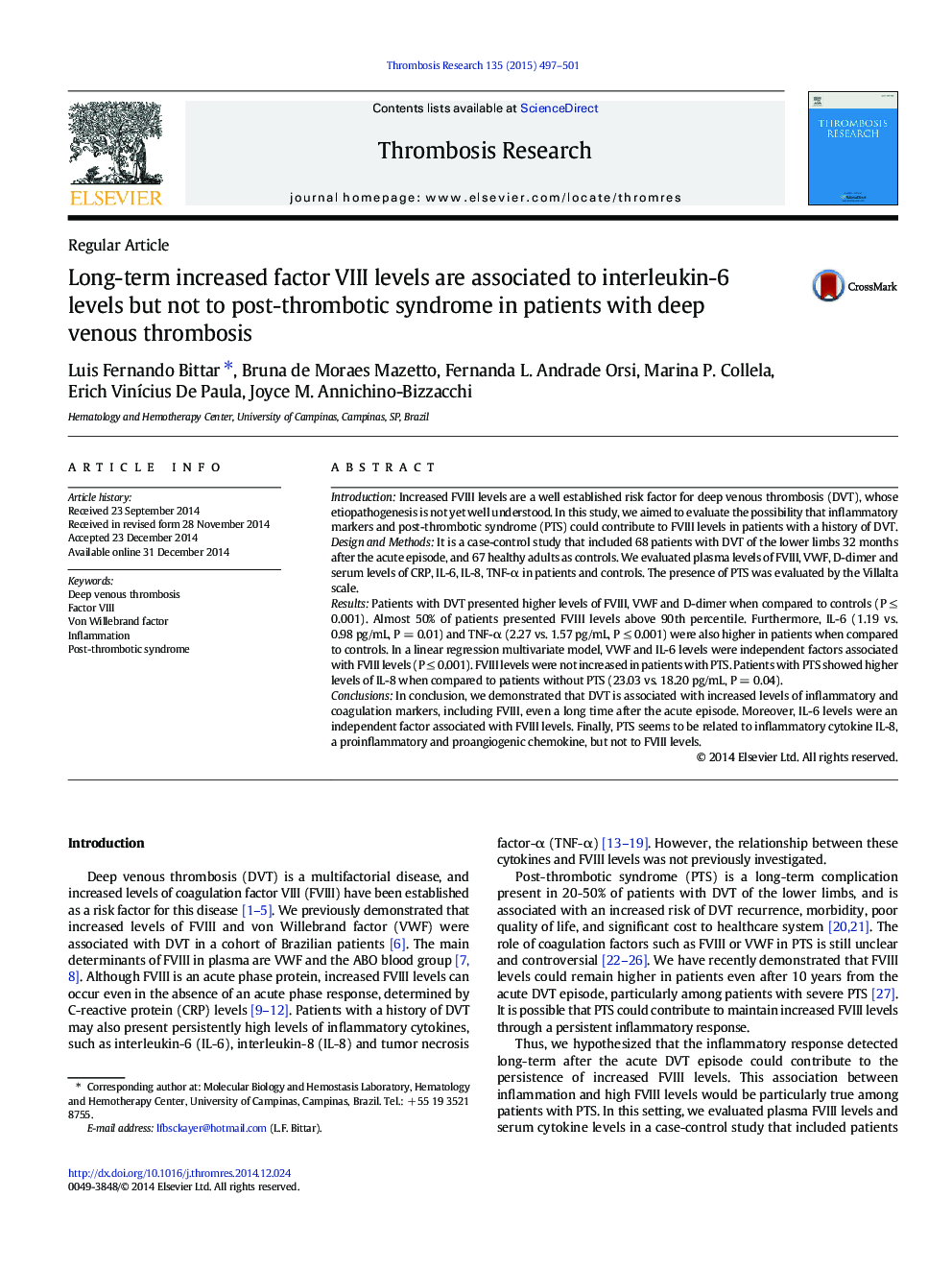| Article ID | Journal | Published Year | Pages | File Type |
|---|---|---|---|---|
| 6001870 | Thrombosis Research | 2015 | 5 Pages |
â¢We showed persistent increased FVIII levels in deep venous thrombosis.â¢We found increased IL-6 and TNF-α levels in patients with deep venous thrombosis.â¢In a multivariate model, VWF and IL-6 were independent factors associated with FVIII.â¢We found an increased IL-8 levels in patients with post-thrombotic syndrome.
IntroductionIncreased FVIII levels are a well established risk factor for deep venous thrombosis (DVT), whose etiopathogenesis is not yet well understood. In this study, we aimed to evaluate the possibility that inflammatory markers and post-thrombotic syndrome (PTS) could contribute to FVIII levels in patients with a history of DVT.Design and MethodsIt is a case-control study that included 68 patients with DVT of the lower limbs 32 months after the acute episode, and 67 healthy adults as controls. We evaluated plasma levels of FVIII, VWF, D-dimer and serum levels of CRP, IL-6, IL-8, TNF-α in patients and controls. The presence of PTS was evaluated by the Villalta scale.ResultsPatients with DVT presented higher levels of FVIII, VWF and D-dimer when compared to controls (P â¤Â 0.001). Almost 50% of patients presented FVIII levels above 90th percentile. Furthermore, IL-6 (1.19 vs. 0.98 pg/mL, P = 0.01) and TNF-α (2.27 vs. 1.57 pg/mL, P â¤Â 0.001) were also higher in patients when compared to controls. In a linear regression multivariate model, VWF and IL-6 levels were independent factors associated with FVIII levels (P â¤Â 0.001). FVIII levels were not increased in patients with PTS. Patients with PTS showed higher levels of IL-8 when compared to patients without PTS (23.03 vs. 18.20 pg/mL, P = 0.04).ConclusionsIn conclusion, we demonstrated that DVT is associated with increased levels of inflammatory and coagulation markers, including FVIII, even a long time after the acute episode. Moreover, IL-6 levels were an independent factor associated with FVIII levels. Finally, PTS seems to be related to inflammatory cytokine IL-8, a proinflammatory and proangiogenic chemokine, but not to FVIII levels.
